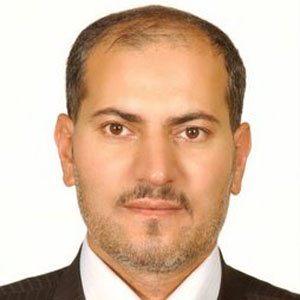They Will Survive
Sirous Borna Boldaji asserts that terrorist attacks could not stop Iraq’s leap forward
_copy_copy.jpg)
This week, Iranian Diplomacy interviewed Dr. Sirous Borna Boldaji, Iraqi affairs analyst, to explore various aspects of recent terrorist attacks in Iraq. Before asking questions, Dr. Boldaji provided us with a background of the conflict in its totality. He believes that the ongoing developments in Iraq are in fact part of a nation-state building process that has started since March 2003 and will continue in the future. Looking from above, this is a developing process Dr. Boldaji asserts. He stressed that UN resolutions and the political structure formed by socio-political forces in Iraq have made the procedure quite fruitful.
Two serious gaps naturally cause problems for Iraq: the ethnic difference between Kurds and Arabs, and the religious triangle consisting of three heads: Shiites, Sunnis and the Fili Kurds. Iraq is the natural sphere of influence of some neighboring countries while subject to the intervention of extraregional forces. These factors have complicated Iraq’s political structure today.
Some news sources claim that Baathis still exist in Iraq’s security system and they may have masterminded the recent blasts. Who is responsible for the bombings you think?
Alqaeda’s infiltration in Iraq is cemented by its alliance between extremist Sunnis (the Salafis), and remnants of the Baath Party and Saddam’s loyalists. This unfortunate trilateral bond has turned Iraq into a fertile ground for terrorist attacks.
How significant is the role of foreign countries in the recent attacks?
Naturally some regional countries, and extraregional forces such as the United States, try to perpetuate the Sunni-Shiite gap or the mistrust between political factions to guard their strategic interests in Iraq.
What was the goal of the violent blasts in Iraq?
The blasts had two key objectives. First is to ruin a structure formed by participation of the Iraqi majority, and Shiites’ undoubted role. The Shiite domination over the Iraqi politics is not pleasant for these terrorist groups. Second is that radical Sunnis in Iraq believe that the grip they have lost over power is the result of United States’ regional strategy. So, they are fighting at two fronts against Shiites and the Americans.
It seems that approaching the parliamentary elections in Iraq, we are witnessing an increasing trend in terrorist attacks. Is there a message behind those blasts?
Naturally, the insurgents are trying to make people believe that the current government led by Nuri Maleki is not capable of ensuring security. They do not want the election to take place in a secure atmosphere.
How are those violent attacks going to affect the future of Iraq?
They can never weaken Iraqis’ determination, especially when the U.S. has announced its scheduled withdrawal plan. Such violence will subside in long-term and Iraq’s potentials, its rich history and culture, the nation’s typical bravery, fertile soil, fossil fuel, agricultural diversity, educated younger generation, and the invaluable experience of Kurd and Shiite leaders can help with controlling the country in the long term, such that the interests of the Iraqi nation, and interests of regional and extra-regional countries will be served.
Two serious gaps naturally cause problems for Iraq: the ethnic difference between Kurds and Arabs, and the religious triangle consisting of three heads: Shiites, Sunnis and the Fili Kurds. Iraq is the natural sphere of influence of some neighboring countries while subject to the intervention of extraregional forces. These factors have complicated Iraq’s political structure today.
Some news sources claim that Baathis still exist in Iraq’s security system and they may have masterminded the recent blasts. Who is responsible for the bombings you think?
Alqaeda’s infiltration in Iraq is cemented by its alliance between extremist Sunnis (the Salafis), and remnants of the Baath Party and Saddam’s loyalists. This unfortunate trilateral bond has turned Iraq into a fertile ground for terrorist attacks.
How significant is the role of foreign countries in the recent attacks?
Naturally some regional countries, and extraregional forces such as the United States, try to perpetuate the Sunni-Shiite gap or the mistrust between political factions to guard their strategic interests in Iraq.
What was the goal of the violent blasts in Iraq?
The blasts had two key objectives. First is to ruin a structure formed by participation of the Iraqi majority, and Shiites’ undoubted role. The Shiite domination over the Iraqi politics is not pleasant for these terrorist groups. Second is that radical Sunnis in Iraq believe that the grip they have lost over power is the result of United States’ regional strategy. So, they are fighting at two fronts against Shiites and the Americans.
It seems that approaching the parliamentary elections in Iraq, we are witnessing an increasing trend in terrorist attacks. Is there a message behind those blasts?
Naturally, the insurgents are trying to make people believe that the current government led by Nuri Maleki is not capable of ensuring security. They do not want the election to take place in a secure atmosphere.
How are those violent attacks going to affect the future of Iraq?
They can never weaken Iraqis’ determination, especially when the U.S. has announced its scheduled withdrawal plan. Such violence will subside in long-term and Iraq’s potentials, its rich history and culture, the nation’s typical bravery, fertile soil, fossil fuel, agricultural diversity, educated younger generation, and the invaluable experience of Kurd and Shiite leaders can help with controlling the country in the long term, such that the interests of the Iraqi nation, and interests of regional and extra-regional countries will be served.

